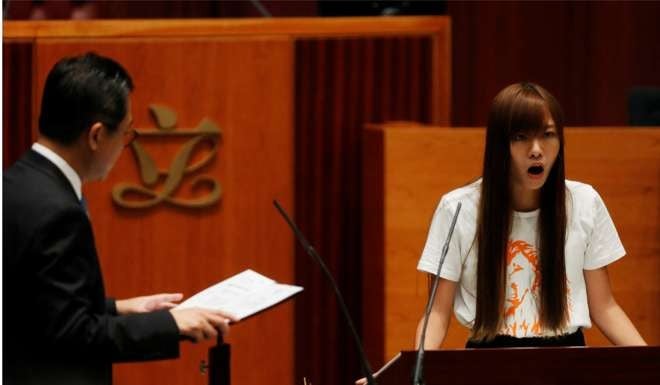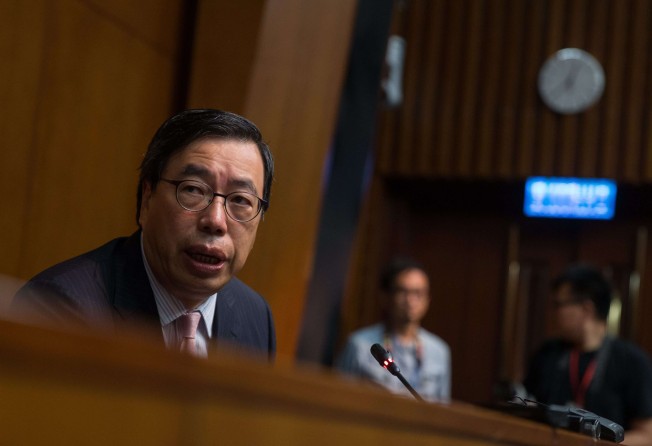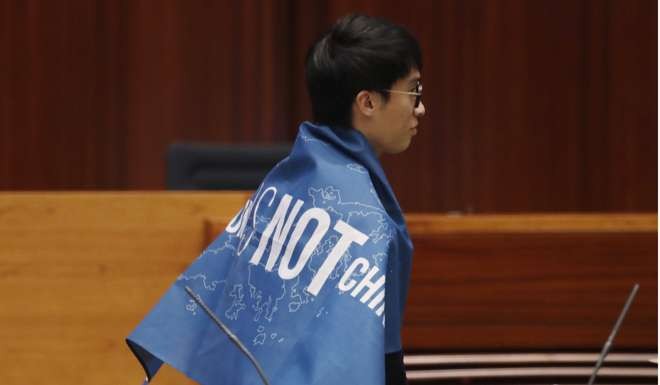
Judicial review on oath-taking is proof that Hong Kong’s system of checks and balances is sound
Ho Lok Sang says the Legco president’s legally dubious decision to allow lawmakers to retake their oaths is ripe for challenge

The much touted “separation of powers” is intended to ensure there are checks and balances between the executive, legislative and judicial branches of government. This is important for sound governance in Hong Kong. Unfortunately, the role of checks and balances has been grossly misunderstood, and our pan-democrats are accusing the government of political interference in the case of two lawmakers who had their oaths invalidated, when actually it is the pan-democrats themselves who are trying to interfere with the workings of such powers.
Pan-democrats have backed the claims of Yau Wai-ching and Sixtus Baggio Leung Chung-hang that the government is destroying the rule of law and ruining the separation of powers. But let us first see whether the government has a case to seek a judicial review against Legislative Council president Andrew Leung Kwan-yan’s decision to allow the retaking of oaths.

The Oaths and Declarations Ordinance spells out the consequences of non-compliance in unequivocal language: “Any person who declines or neglects to take an oath duly requested ... shall (a) if he has already entered on his office, vacate it, and (b) if he has not entered on his office, be disqualified from entering on it.”
Thus, there is no leeway for the Legco president to allow a second chance for taking the oath. If the act of non-compliance is established, then disqualification follows. The president’s decision to allow a retaking of the oath, even when an act of non-compliance has been established, constitutes a misuse of his powers. The only area of contention is whether the behaviour of these two legislators-elect constitutes non-compliance. Indeed that is what the High Court judge said.
The only area of contention is whether the behaviour of these two legislators-elect constitutes non-compliance
Looking at some general principles, the first thing that should be said is that the spirit of the law and its intention must be considered. Judgments cannot be made in a vacuum. Second is whether the explanations offered by the legislators-elect are credible. These explanations must show that their behaviour, perceived to constitute non-compliance, was not intended as such.
The High Court will rule independently on these matters. It is important that neither the government nor the democrats put political pressure on the courts.
In terms of checks and balances, none of the three branches of government must deviate from standards and procedures and none can “do anything it likes”. There are powers that each can exercise, and they must be exercised under the frame of reference specified. If any of the branches misuse its powers, it should be open to challenge.
The SAR government and its citizens are stakeholders and are entitled to request a judicial review when they perceive that powers have been misused. The legislative branch is not free from checks and balances. Even though Yau and Leung were elected, they need to comply with the law. Even though Andrew Leung Kwan-yuen is president of Legco, he, too, has to comply with the law. Those are the checks and balances.

Alan Leong Kah-kit, the former leader of the Civic Party, says that the request for a judicial review “is the most severe constitutional crisis since the handover”. He accuses the executive branch of unduly interfering with Legco affairs, and in particular of undermining the legal powers of the Legco president. This position was echoed by Sixtus Leung, who says his fight with the government is to safeguard Hong Kong people’s interests. Johannes Chan Man-mun, a former dean of the law faculty of the University of Hong Kong, also says that the bid for a judicial review “appears to be a political decision rather than one that is motivated by the public interest, and constitutes an affront to the separation of powers”. I can understand why Leung presents his case this way. But when two senior law professionals say these things, effectively implying that the Legco president and legislature itself should be free from checks and balances, I am truly baffled.
If the legislators-elect have declined or neglected to take an oath as required by the law, they have lost their right to sit in the chamber and the president should have no power to allow a second oath-taking.
Ho Lok Sang is dean of business at Chu Hai College of Higher Education